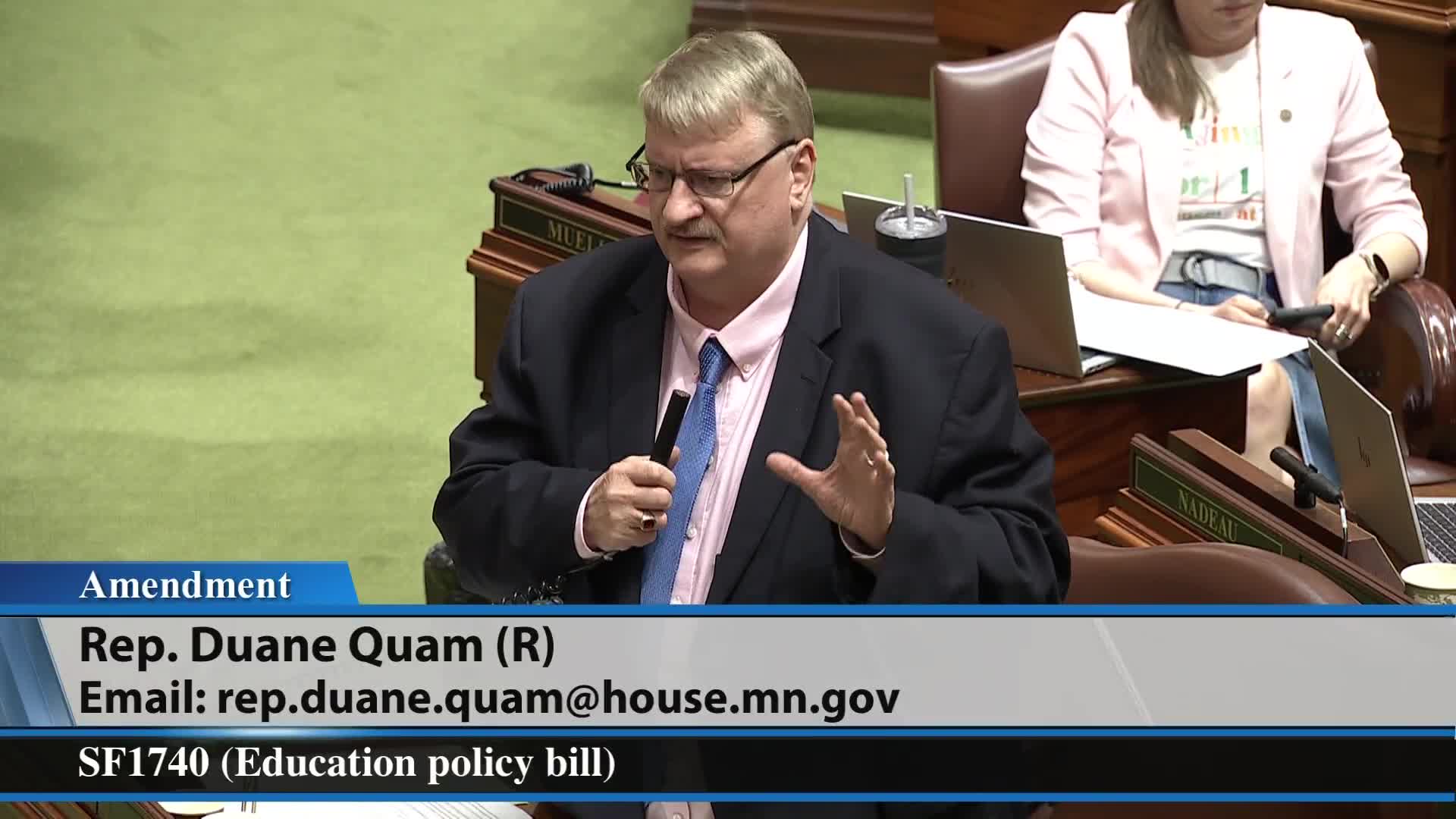Article not found
This article is no longer available. But don't worry—we've gathered other articles that discuss the same topic.
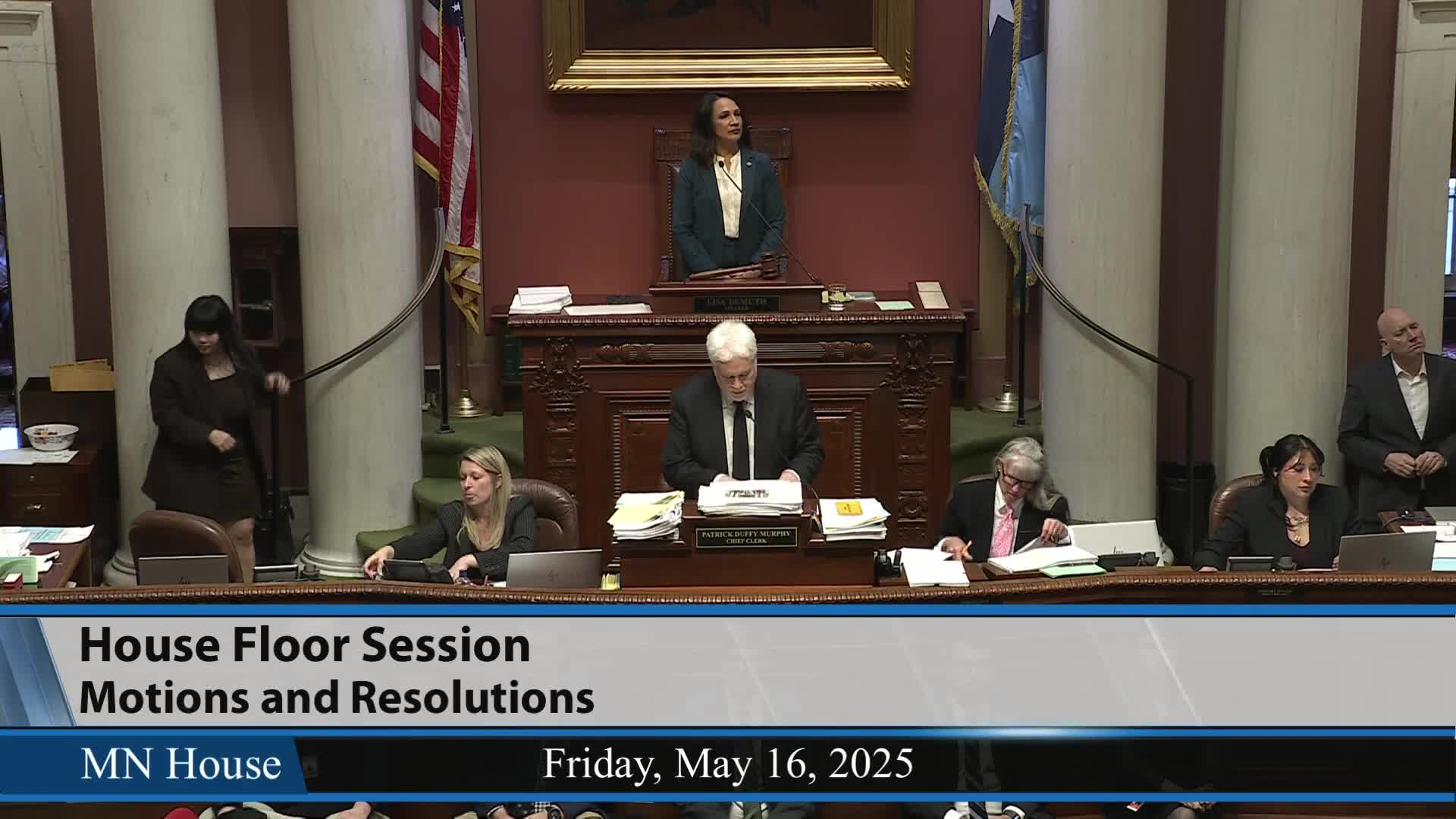
House adopts broad education policy package after heated debates on start dates, discipline and reading
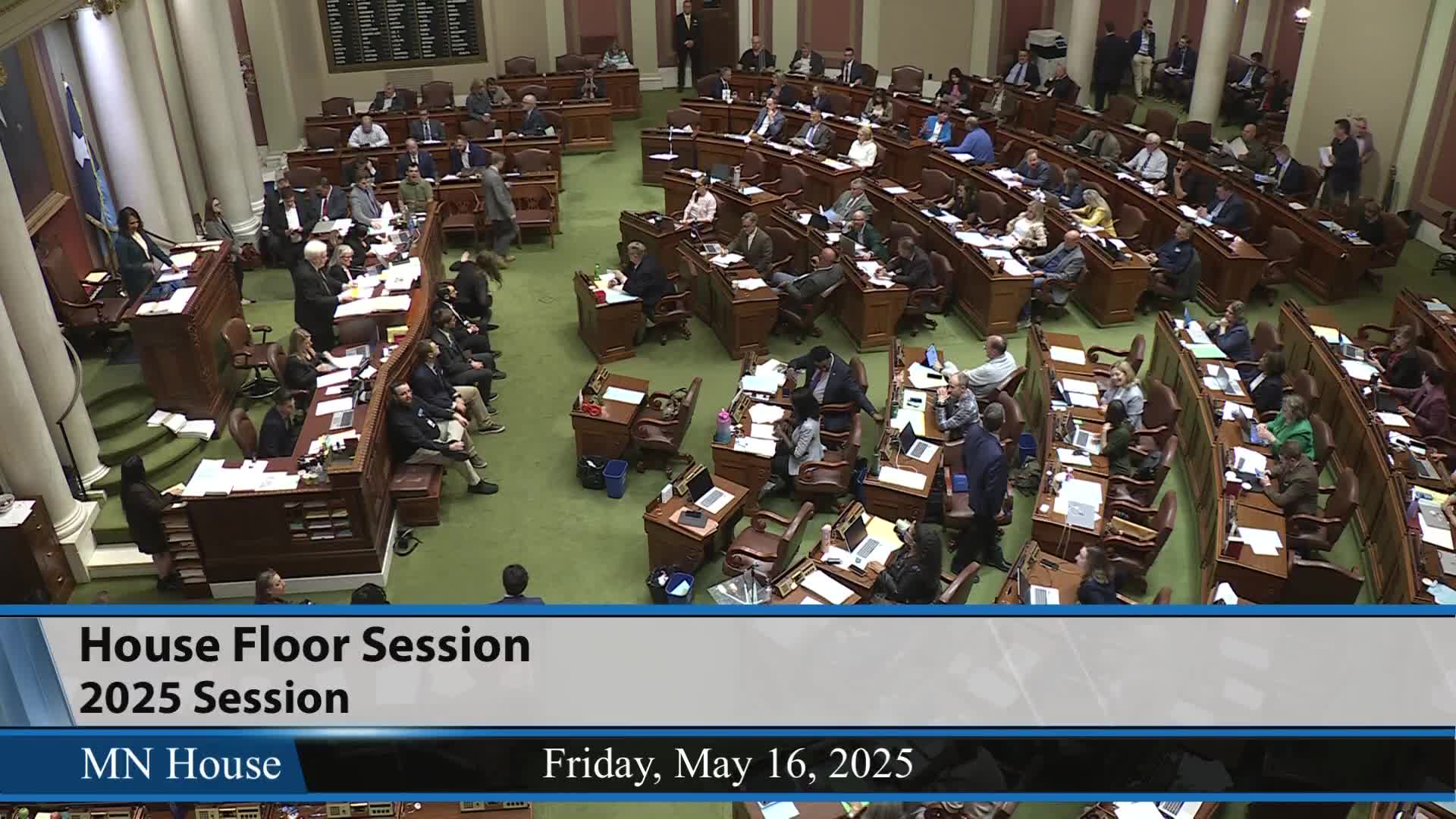
House repasses workers' compensation changes after Senate amendments
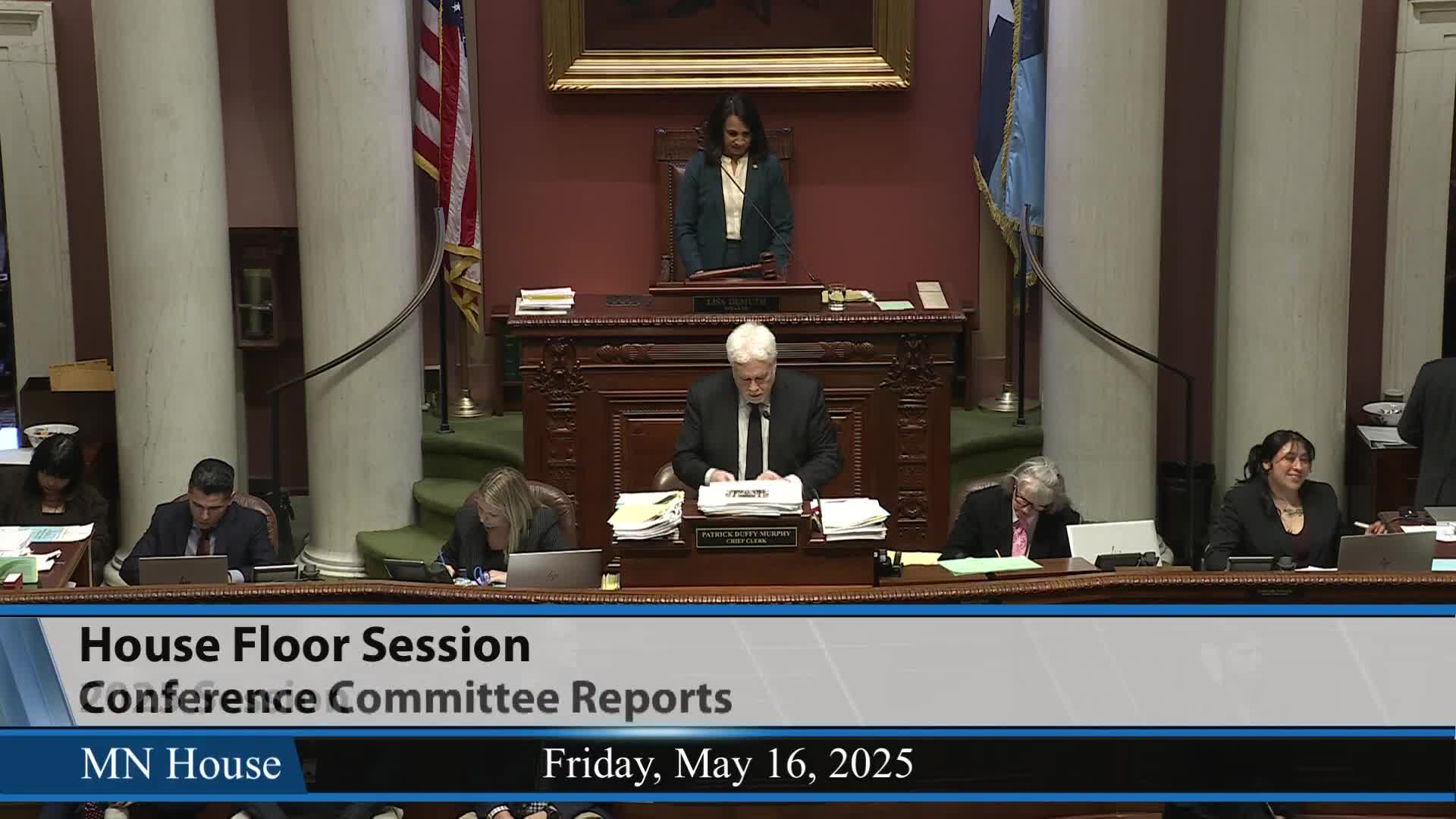
House repasses DWI interlock bill after conference amendments
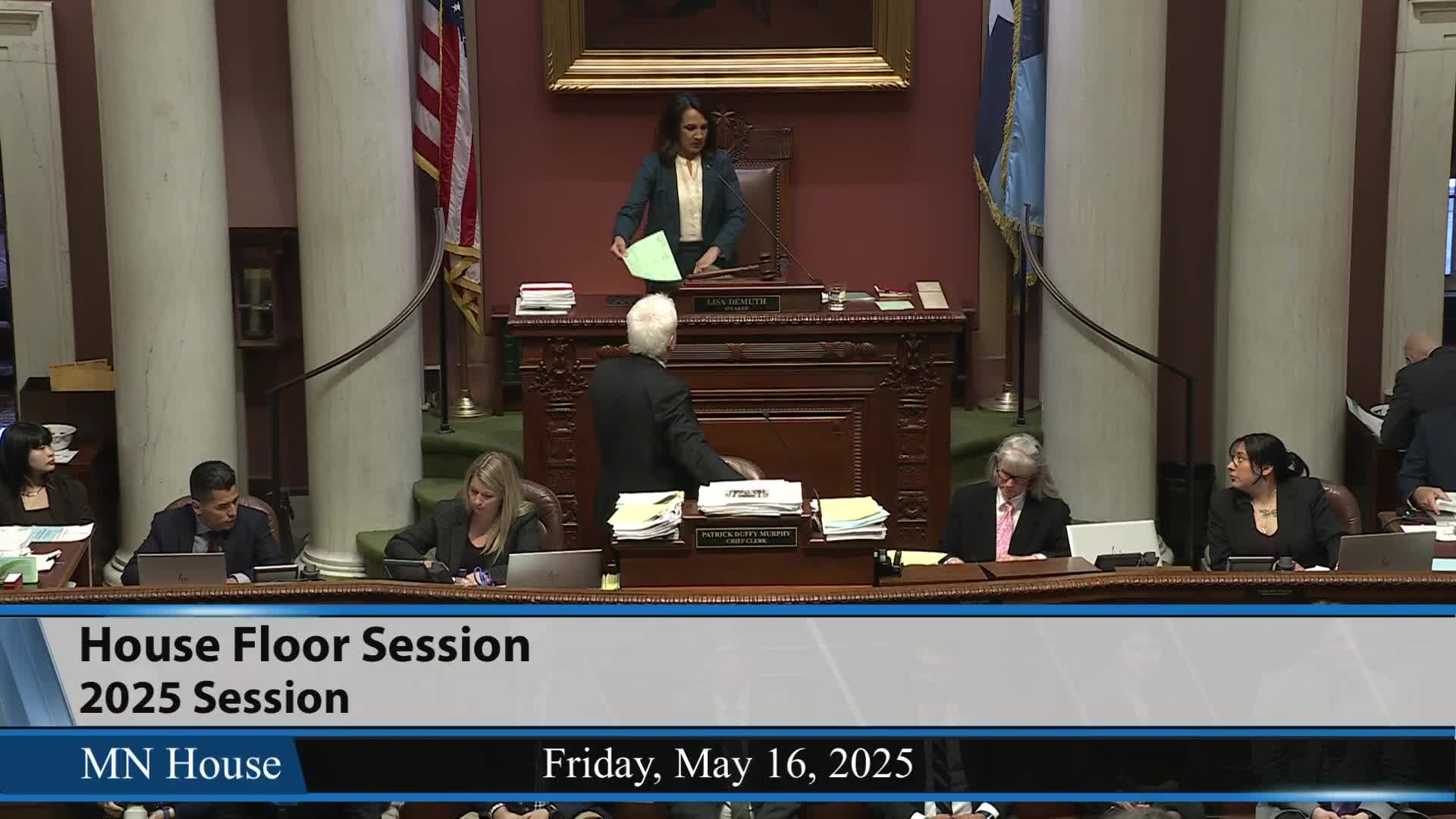
House adopts corrections vehicle bill, sends it to Senate
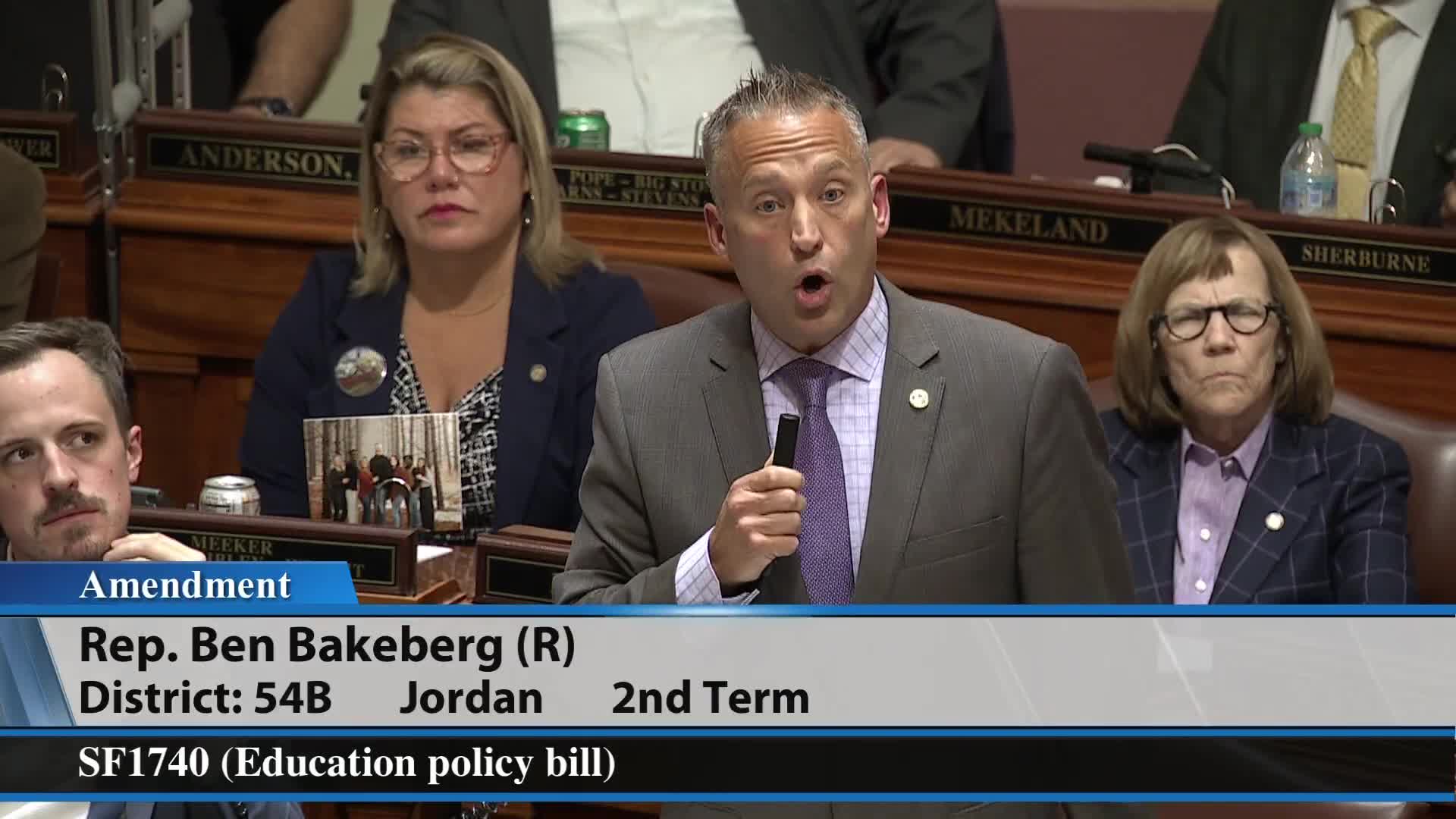
House completes late‑session business: messages, noncontroversial motions and adjournment schedule
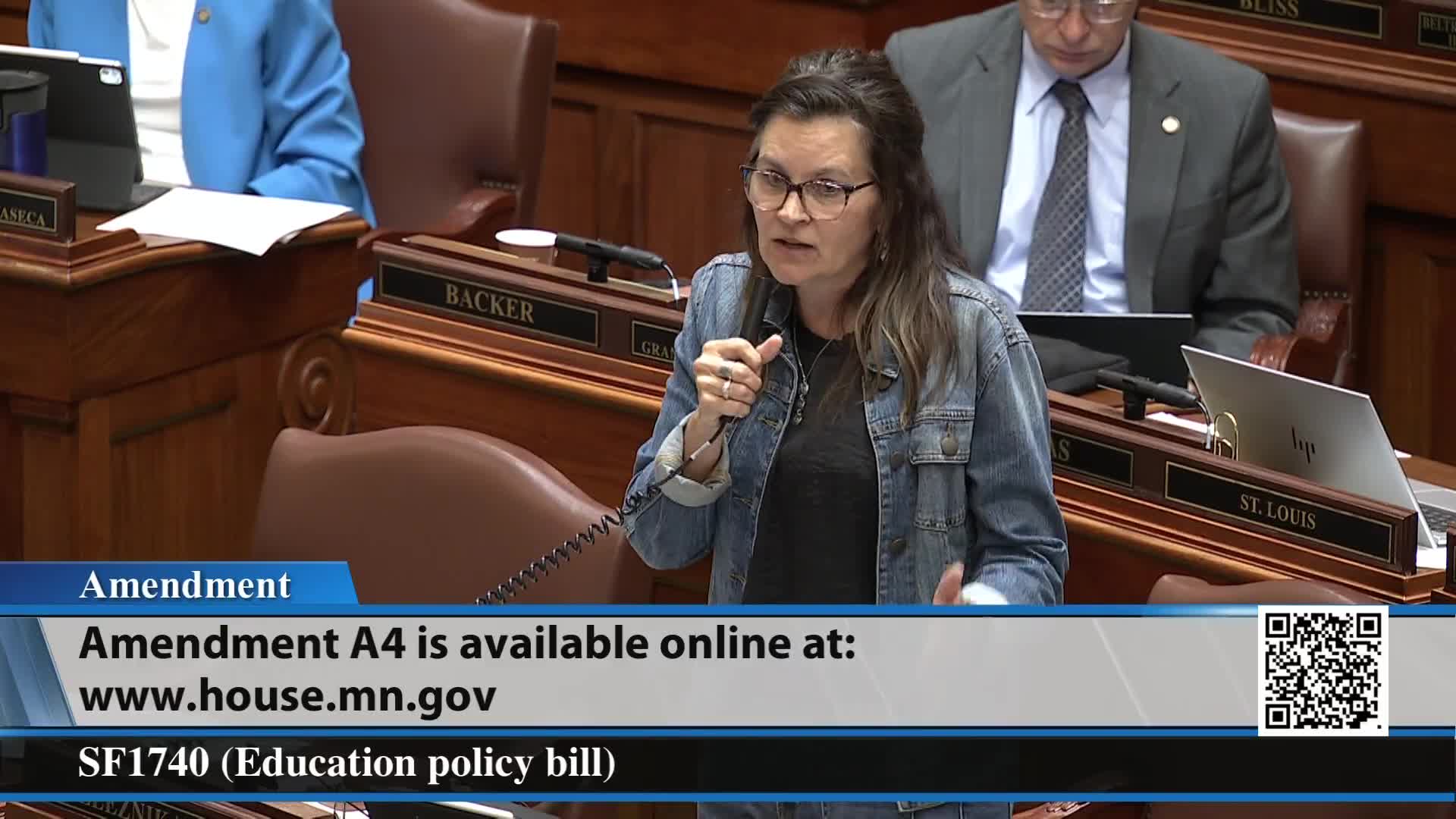
House fast‑tracks $100M plan to reimburse districts for hourly‑worker unemployment claims
